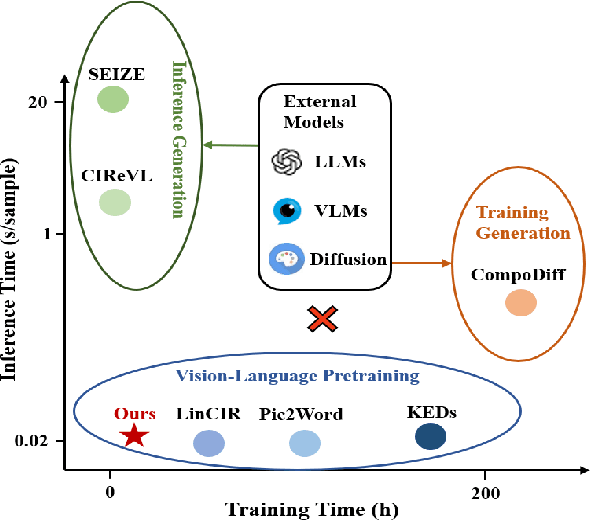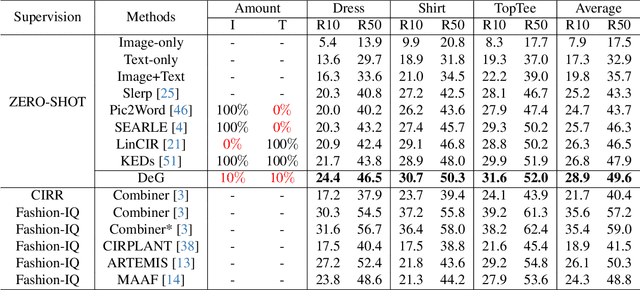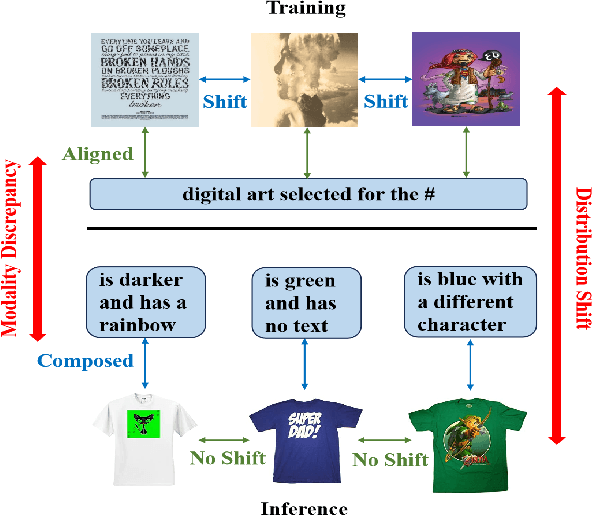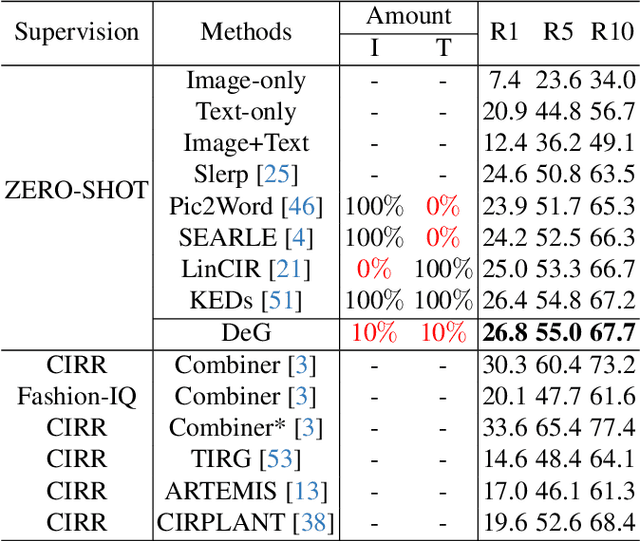Data-Efficient Generalization for Zero-shot Composed Image Retrieval
Paper and Code
Mar 07, 2025



Zero-shot Composed Image Retrieval (ZS-CIR) aims to retrieve the target image based on a reference image and a text description without requiring in-distribution triplets for training. One prevalent approach follows the vision-language pretraining paradigm that employs a mapping network to transfer the image embedding to a pseudo-word token in the text embedding space. However, this approach tends to impede network generalization due to modality discrepancy and distribution shift between training and inference. To this end, we propose a Data-efficient Generalization (DeG) framework, including two novel designs, namely, Textual Supplement (TS) module and Semantic-Set (S-Set). The TS module exploits compositional textual semantics during training, enhancing the pseudo-word token with more linguistic semantics and thus mitigating the modality discrepancy effectively. The S-Set exploits the zero-shot capability of pretrained Vision-Language Models (VLMs), alleviating the distribution shift and mitigating the overfitting issue from the redundancy of the large-scale image-text data. Extensive experiments over four ZS-CIR benchmarks show that DeG outperforms the state-of-the-art (SOTA) methods with much less training data, and saves substantial training and inference time for practical usage.
 Add to Chrome
Add to Chrome Add to Firefox
Add to Firefox Add to Edge
Add to Edge